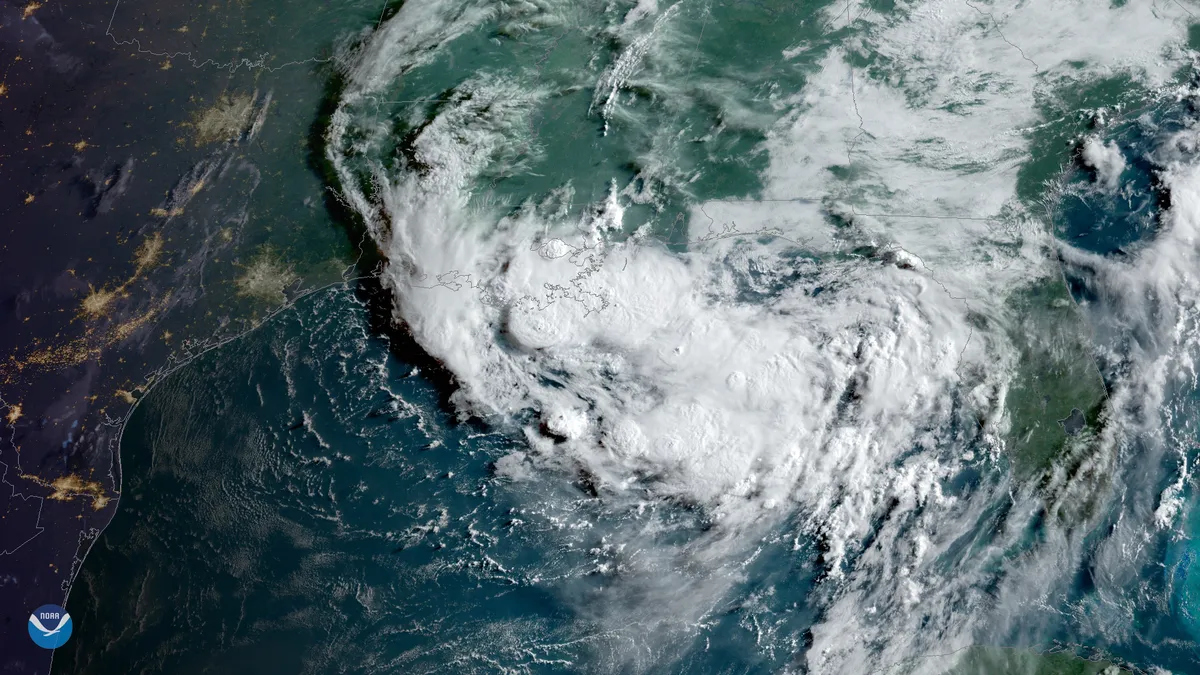UPDATE: July 12, 2018: The Coast Guard upgraded the condition at the Port of New Orleans to port condition Yankee at 3 p.m. CT Thursday, meaning gale force winds are expected within 24 hours. Vessels seeking to depart the port must arrange for immediate departure. The port is closed to incoming traffic and cargo-loading at most terminals has ceased. The storm is expected to make landfall early Saturday morning.
Dive Brief:
- Louisiana Governor John Bel Edwards declared a state of emergency Wednesday ahead of Tropical Storm Barry, which is headed toward the Gulf Coast and expected to hit Louisiana, Mississippi and Alabama in earnest this weekend, threatening port operations at the ports of New Orleans, Baton Rouge and Mobile.
- The U.S. Coast Guard has set port condition "whiskey" for the three threatened ports, meaning gale force winds are expected to arrive at the port within 72 hours. The ports will remain open until the condition advances two more levels to condition "yankee." Several major energy players in the gulf are evacuating staff, according to Bloomberg.
- "There’s already significant flooding in South Louisiana, especially New Orleans, and if Barry continues on its predicted path, it could bring as much as 15 additional inches of rain to the area. As a result, we have good reason to believe this could be the first significant hurricane of the 2019 season," said Kathy Fulton, Executive Director of the American Logistics Aid Network (ALAN), in a statement emailed to Supply Chain Dive.
Dive Insight:
Tropical Storm Barry has already caused significant flooding in the Northern Gulf Coast and Mississippi Valley, threatening to wash out roads, railroad tracks and interrupt barge freight. In fact, the National Weather Service issued a flash flood emergency for the New Orleans area Wednesday. The Mississippi River has already had a wet year, with river levels higher than usual for the start of hurricane season, which means heavy rain could be all the more destructive.
A storm surge watch is in effect surrounding the mouths of the Pearl and Mississippi Rivers according to the National Weather Service.
ALAN, which works to match donated logistics services with non-profits in need, has yet to receive a request for service, but Fulton expects request may begin soon.
"While there have been no requests for our assistance yet, that situation could quickly change if Barry continues to strengthen and travel on its predicted path," she said. "So stay tuned, because if we do receive requests, we’ll try to communicate them quickly via our Disaster Micro-site as well as our Twitter, Facebook and LinkedIn accounts."














